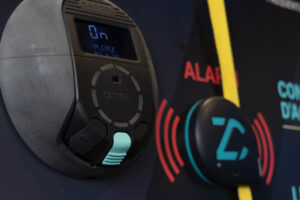
Dyed irrigation water to study the impact of freshwater on bivalve aquaculture in the Delta
December 3, 2021
GOPHYTOVID: Optimisation of the use of plant health products based on plant vigour maps
January 11, 2022The Agricultural Machinery Unit (UMA) of the UPC is coordinating the national project Smart Spraying for Sustainable Vineyards and Olive Trees (PIVOS). The aim of the project is to demonstrate the benefits of smart spraying of plant health products for sustainable use of pesticides in vineyards and olive trees. These benefits include maintaining biological efficacy and reducing economic and environmental costs.

New technologies in the application of plant health products have had a low impact in comparison with the technology that is available for commodity crops. As a result, the high amount of plant health products used, the high risk of contamination and the additional operating costs are the main aspects that characterise the protection of these high value crops.
In this context, the PIVOS project will develop new technologies that will help to improve the process of applying plant health products, through a new smart system of management of the spraying. First, the vegetation will be characterized in a smart way through ground and aerial sensors in the crops. A protocol will be developed to obtain prescription maps of the volume to be applied and the volume of air, which can be used to automatically adjust the quantities to apply. Finally, the results obtained will be tested in the field for validation and quantification of the benefits at agronomic, economic and environmental level.
The project is comprised of a consortium of four universities: the University of Córdoba, the Universitat Politècnica de València, the University of Zaragoza and the Universitat Politècnica de Catalunya - BarcelonaTech (UPC).
PIVOS is funded by the State Research Agency of the Ministry of Science, Innovation and Universities, and has a duration of three years (June 2020 to May 2023).
Related Projects
- The Visualisation, Virtual Reality and Graphic Interaction Research Group (ViRVIG) at the Universitat Politècnica de Catalunya - BarcelonaTech (UPC) has participated in the XR4ED project, an initiative that connects the educational technology (EdTech) and Extended Reality (XR) sectors, with the aim of transforming learning and training across Europe.
- The inLab FIB at the UPC has collaborated with Lizcore® for the development of a proof of concept based on artificial intelligence to improve safety in climbing with autobelay devices. The system allows the automatic and accurate detection of risk situations before starting a route.
- Researchers from the Centre for Image and Multimedia Technology of the UPC (CITM) and from the DiCode research group (Digital Culture and Creative Technologies Research Group) of the Universitat Politècnica de Catalunya – BarcelonaTech (UPC) have worked on the project The Eyes of History, an initiative of the Catalan Agency for Cultural Heritage that offers an immersive view of Catalan cultural heritage. It is especially aimed at the first and second cycles of secondary education and was created to bring heritage into the classroom. Its goal is to bring the history and monuments of Catalonia closer in a vivid and innovative way, using tools such as virtual reality and new museographic narratives.
- City and Play is a social action project coordinated by researchers from the Centre for Image and Multimedia Technology (CITM) and the DiCode research group (Digital Culture and Creative Technologies Research Group) of the Universitat Politècnica de Catalunya – BarcelonaTech (UPC), the Universitat Oberta de Catalunya (UOC) and the University of Barcelona (UB), and funded by Barcelona City Council. The aim of the project is to promote civic competences and reflection on the urban environment among adolescents through the creation of an open framework that uses methodologies based on play, co-creation and storytelling.




